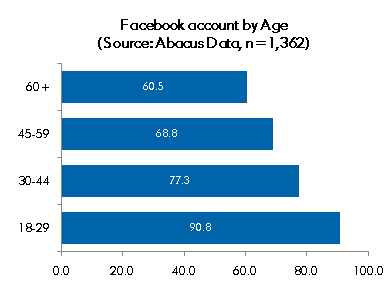 Researchers at the University of Edinburgh Business School found that more Facebook friends means more stress.
Researchers at the University of Edinburgh Business School found that more Facebook friends means more stress.
A large number of friends on Facebook may appear impressive but, according to a new report, the more social circles a person is linked to online the more likely social media will be a source of stress.
A report from the University of Edinburgh Business School has found that the more groups of people in someone’s Facebook friends, the greater potential to cause offence. In particular, adding employers or parents resulted in the greatest increase in anxiety.
Stress arises when a user presents a version of themself on Facebook that is unacceptable to some of their online ‘friends’, such as posts displaying behaviour such as swearing, recklessness, drinking and smoking.
As older people join the site, this has become an increasing problem as their expectations may
be very different from those of younger users.
Some 55 per cent of parents follow their children on Facebook. Likewise, more than half of employers claim not to have hired someone based on their Facebook page. Researchers found that on average people are Facebook friends with seven different social circles. The most common group was friends known offline (97 per cent added them as friends online), followed by extended family (81 per cent), siblings (80 per cent), friends of friends (69 per cent), and colleagues (65 per cent).
The report also discovered that more people are Facebook friends with their former partners than with their current relationship partner. Only 56 per cent of users were friends with their boyfriend, girlfriend or spouse online, compared with 64 per cent of exes.
The report surveyed more than 300 people on Facebook, mostly students, with an average age
of 21. It also discovered that only one third use the listing privacy setting on their Facebook profile, which can be used to control the information seen by different types of friends.
Ben Marder, author of the report and early career fellow in marketing at the Business School, said: “Facebook used to be like a great party for all your friends where you can dance, drink and flirt. But now with your Mum, Dad and boss there the party becomes an anxious event full
of potential social landmines.


